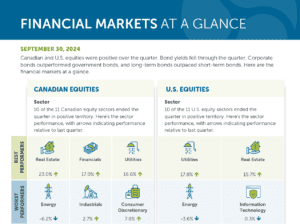10 Things to Know About the ACA Exchange System

What You Need to Know
The open enrollment period started Wednesday in most of the country.
The Affordable Care Act open enrollment period for 2024 coverage started Wednesday in most of the country without much of a fuss.
The ACA public health insurance exchange system turns 10 this year, and insurers, agents and consumers all seem to know what to do.
Although the enrollment period launch was quiet, the Google Trends search tool shows that search activity for “HealthCare.gov” during the week ending Oct. 28 was 40% higher than in the comparable week in 2022.
George Kalogeropoulos, CEO of HealthSherpa, an ACA exchange plan sales support firm, said in a LinkedIn post that the firm is already averaging three enrollments per second.
The history: Congress created the ACA exchange system in an effort to help people use federal premium tax credit subsidies to shop for high-quality commercial health coverage through a system resembling a Travelocity for health insurance.
Thee exchange programs have a limited enrollment period to try to prod younger, healthy people to sign up and pay for coverage even when they feel healthy, by raising the possibility that they could be shut out of buying coverage if they suffered a serious illness or injury in the middle of the year.
States can set up their own ACA exchange programs.
The U.S. Department of Health and Human Services created HealthCare.gov to serve residents of states unwilling or unable to run their own exchange programs.
In 2024, 18 and the District of Columbia will have their own state-based exchange programs, and 33 will use HealthCare.gov.
About 16 million people now have exchange plan coverage.
The Georgetown University Center on Health Insurance Reforms has posted an ACA exchange program guide, aimed at nonprofit navigators, that might be a useful supplement to what clients are getting from their agents, or what agents are getting from the exchange programs, the insurers and marketing organization support teams.
Other ACA open enrollment period facts: Nov. 1 is not actually the first day of the 2024 open enrollment period throughout the country.
Idaho started its 2024 enrollment period Oct. 15, according to HealthInsurance.org, an arm of IHC Specialty Benefits.
The enrollment period end dates range from Dec. 15, in Idaho, to Jan. 31, in California, New Jersey, New York, Rhode Island and the District of Columbia.
Here are 10 more things to know about the open enrollment period:
1. Virginia is the newest state to have its own ACA exchange program.
Virginia’s Insurance Marketplace is now up and running.
One feature on the front page is a “Search for an Agent” tool.
“Whether you’re shopping as an individual, family, or small business with employees, an agent can provide you with personalized plan recommendations and enrollment support,” according to the tool.
2. The ACA exchange system never succeeded at replacing live-human agents.
Managers of HealthCare.gov and the state-based exchanges in California and Colorado have indicted that about half of their business comes in via agents and brokers.
When Policygenius conducted a survey of 2,051 U.S. consumers ages 18 and older who had health coverage, it found that only 30% of the participants said they were very confident about their ability to sign up for a plan on an individual “health insurance marketplace,” and 8% of the participants did not know what an individual health insurance marketplace was.
3. The number of agents registered with HealthCare.gov is down.
At the end of the year ending Oct, 31, the number of registered agents fell 5.9%, to 81,391, according to an HHS agent registration dataset.
Some of the drop could be due to Virginia’s shift to running its own exchange program. For 2023, Virginia accounted for about 2.8% of HealthCare.gov’s plan selection activity.
Plan Year
Producer Signups by Oct. 31 in the previous year
Change from previous year
..2014..
..39,528..
..NA..
..2015..
..71,224..
..+80.2%..
..2016..
..73,034..
..+2.5%..
..2017..
..66,330..
..-9.2%..
..2018..
..54,278..
..-18.2%..
..2019..
..53,513..
..-1.4%..
..2020..
..55,467..
..+3.7%..
..2021..
..60,563..
..+9.2%..
..2022..
..70,620..
..+16.6%..
..2023..
..86,592..
..+22.6%..
..2024..
..81,491..
..-5.9%..
4. Some exchanges are experimenting with relatively new kinds of sales and marketing technology.
Covered California, for example, has put a chatbot named CiCi on its homepage. CiCi can answer simple questions about topics such as getting help with logging in or checking the status of a coverage application.
5. Exchanges, insurers and agents are intent on helping the low- and moderate-income enrollees now being ejected by Medicaid apply for exchange coverage.






